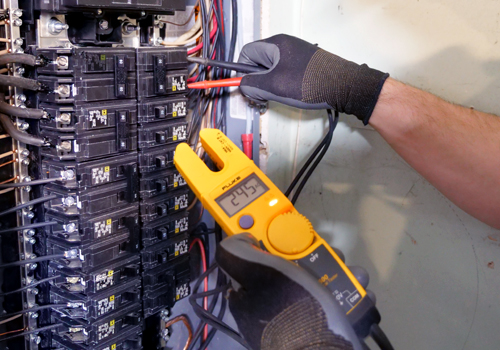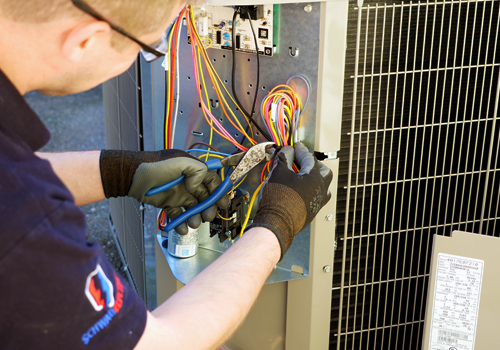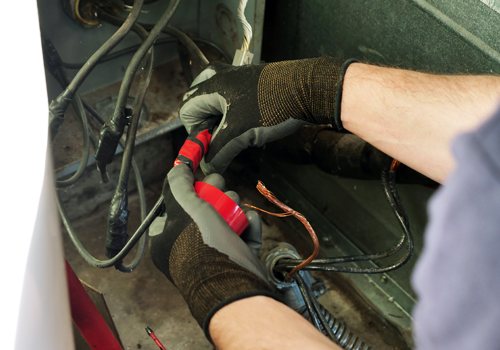RESIDENTIAL SERVICES
OUR RESIDENTIAL ELECTRICAL SERVICES
Frequently Asked Questions
Many homes have a Ground Fault Circuit Interrupter (GFCI) located in the garage, usually near the panel that protects the garage and outdoor receptacles. If it is tripped, the reset button needs to be pushed in completely to restore power. If it does not restore power, you may need an electrician to troubleshoot the issue
For many homes, there’s one or two GFCIs protecting the kitchen countertop receptacles. Try pushing the ‘Reset’ button, located on one of the receptacles.
Like your kitchen and garage, there is typically a GFCI on bathroom receptacles as well. Look for the ‘Reset’ button on one of the receptacles and press it.
- Replacing ungrounded wiring is quite labor-intensive. It can also be the most expensive thing to replace in your home, because as the wiring must be upgraded to the current codes that older homes typically didn’t follow, as well as being completely replaced.
- Additionally, great care must be made to fish wires up and down finished walls to refeed wires. In several cases, holes may have to be cut in the finished wall in order to get wires to where they need to go.
- Most portable heaters or air conditioners draw a lot of electrical power—typically around 1,500 watts. This is nearly enough to load up an entire circuit, as an average wire and circuit in a home is 15A (1,800 watts).
- There’s few wired spots in a home that allow these appliances to be run without tripping a breaker, but code doesn’t require this much power, nor considers it for portable heating and cooling. A new dedicated circuit is likely needed to power this equipment properly.
Doing this may very well start a fire. Breakers are sized according to the wiring installed and are typically already at the maximum they can be.
Extension cords are meant to be temporary, and aren’t made to be used as a permanent installation. Most extension cords have wires and ratings less than that of your average circuit. Never put a heater or a big electrical load on an extension cord as it could burn up the cord and start a fire.
There is likely a loose wire of some sort somewhere on the circuit. Oftentimes, wires can become loose when a poor connection is made. You’ll need to have an electrician fix the issue.
Our electrical licenses and permits only cover ourselves to do electrical work. We’re not code instructors—it takes years to learn the code, and can’t be taught in a day.




